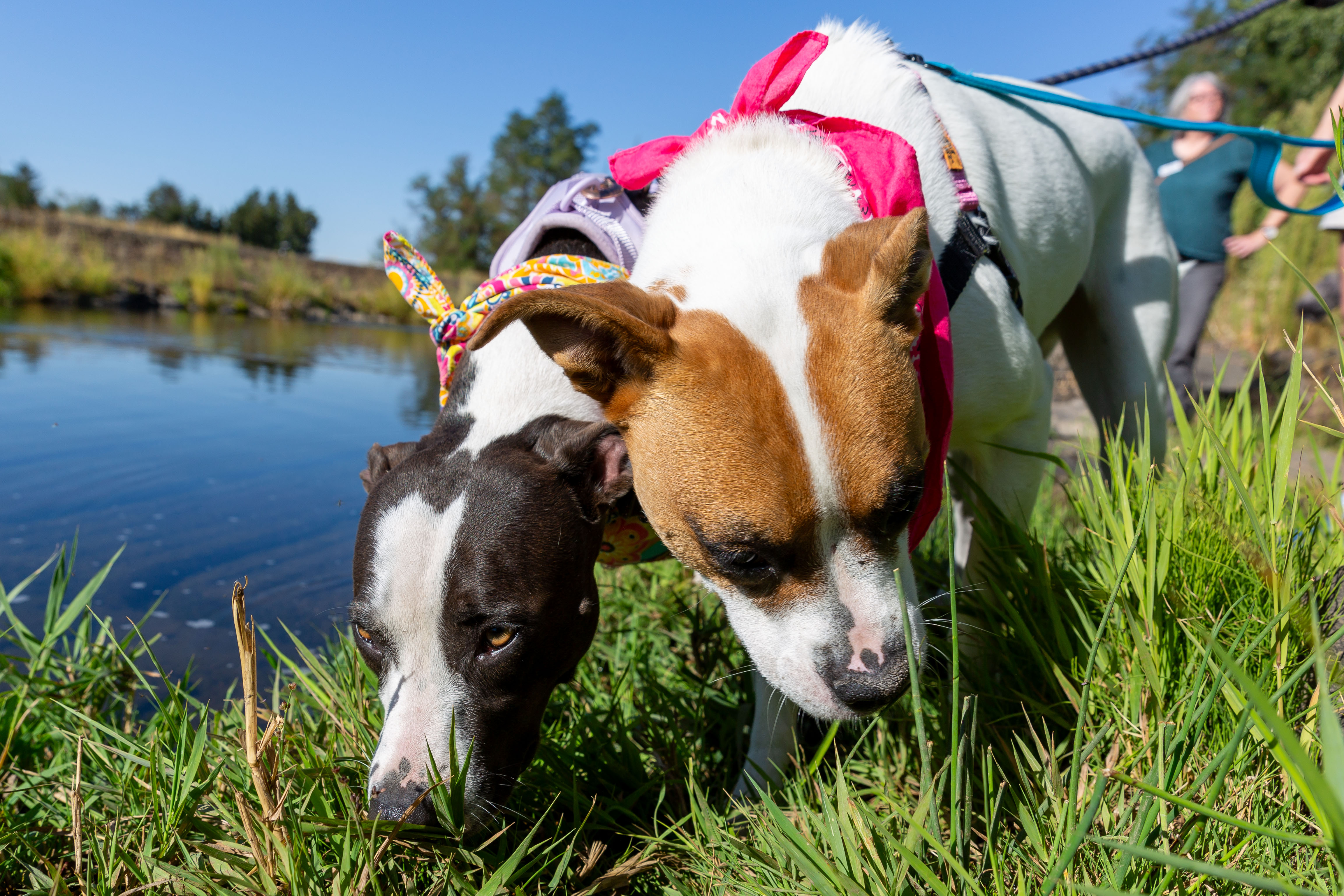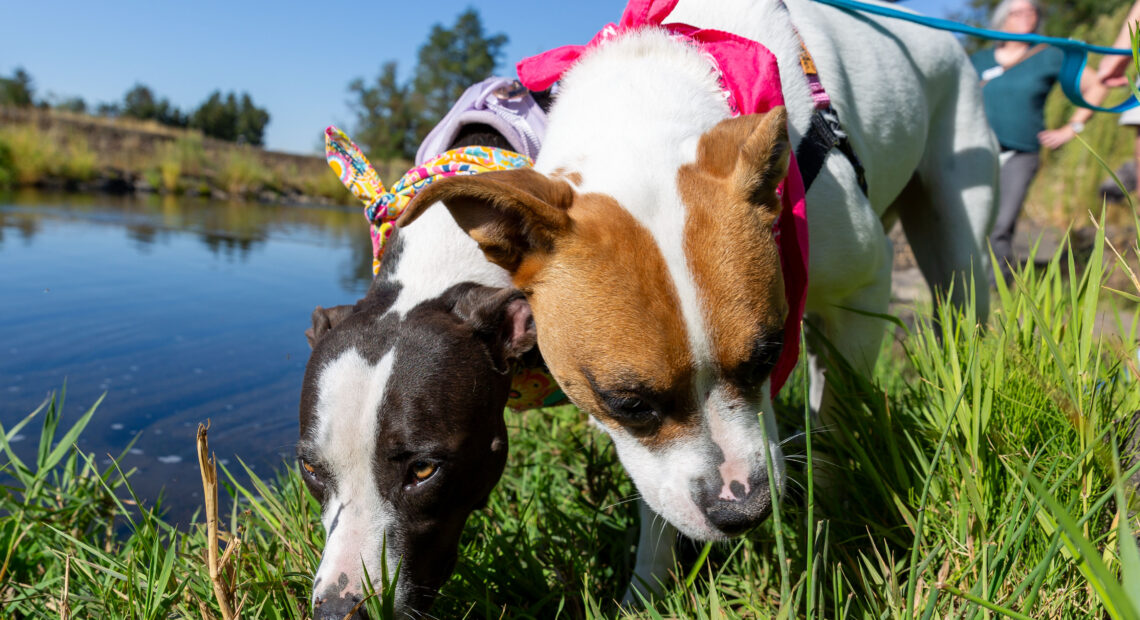
Walla Walla’s shelter dogs get a sniff of the outside world
Watch
Listen
(Runtime 1:04)
Read
At many animal shelters, dogs don’t leave the grounds until they’re adopted.
But in Walla Walla, shelter dogs are getting a chance to explore the outside world. That’s thanks to the Blue Mountain Humane Society’s Pawsitive Adventure program, which started a year ago.
Several days of the week, volunteers take dogs on field trips to wineries, coffee shops, trails and more.
“It’s wonderful to get the dogs out at the shelter, but this is such a different experience,” said Bonnie Terrio, a regular volunteer. “You can see them relax.” The dogs get to sniff and socialize and “just be dogs,” she said.
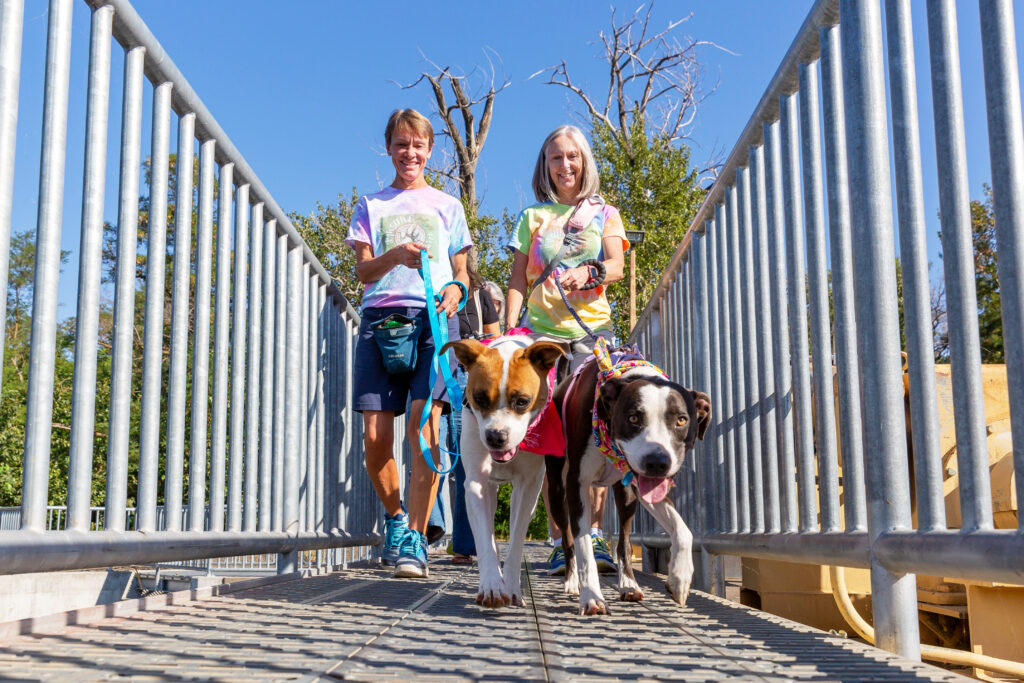
Blue Mountain Humane Society volunteers Bonnie Terrio, left, and Machelle Colligan, right, take the dogs on a bridge over Mill Creek. (Credit: Steve Lenz / Blue Mountain Humane Society)
Nationally, fewer animals are entering shelters this year than the two years prior, according to Shelter Animals Count, a nonprofit organization. But many shelters remain full: Overall, the organization reported that 322,000 more animals have entered shelters than left them in 2024.
At Blue Mountain Humane Society, cats and small dogs go pretty quickly. That’s not the case for bigger dogs. Some of the dogs at Blue Mountain have been there for over a year.
“Our dog kennels are full almost all of the time,” said Dian Ver Valen, the shelter’s CEO. “And these are larger dogs, dogs that are a lot more difficult to find families for. They end up staying for a very long time.”
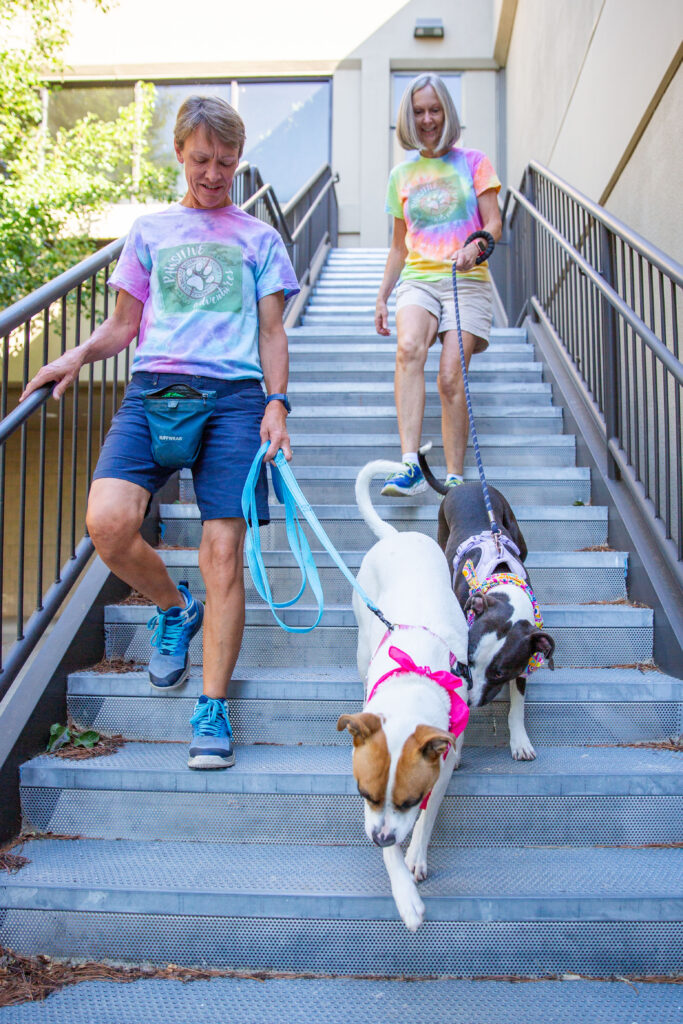
The volunteers check the dogs’ comfort with things like stairs, bikes and loud noises — all pieces of information they can pass along to potential adopters. (Credit: Steve Lenz / Blue Mountain Humane Society)
Staying at a shelter for more than a few weeks can wreak havoc on a dog’s emotional state, Ver Valen said. The Pawsitive Adventures program focuses on these longer-stay dogs, giving them an opportunity to decompress.
The program also serves as a marketing tool. While out on field trips, volunteers take lots of photos, which the shelter can then share on social media. For prospective families, seeing a dog sitting at a winery — rather than in a cage — can help them picture that dog as a part of their life.
Going on Pawsitive Adventures gives the shelter more information about each dog, too. As Ver Valen said: “Then when we’re talking to potential adopters, we have a lot more information to tell them: ‘Oh, they love playing fetch. They love swimming, they’re really interested in water.’ Or ‘we took them to these cafes in town and they did really well.'”
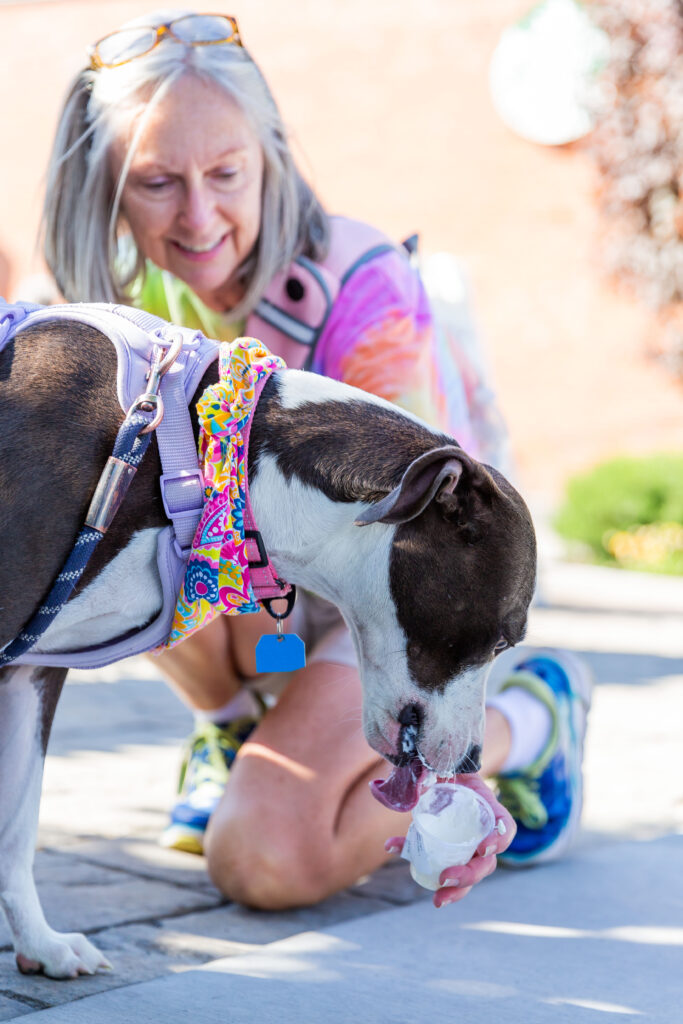
Betzy enjoys a pup cup in downtown Walla Walla. (Credit: Steve Lenz / Blue Mountain Humane Society)
That can help attract potential adopters and boost success rates. “The more we know about the dog, the more successful we will be at matching them with the right family,” Ver Valen said. Several dogs have even met their forever families while out on the field trips.
And while no one enjoys the program more than the dogs, it’s beloved by volunteers, too.
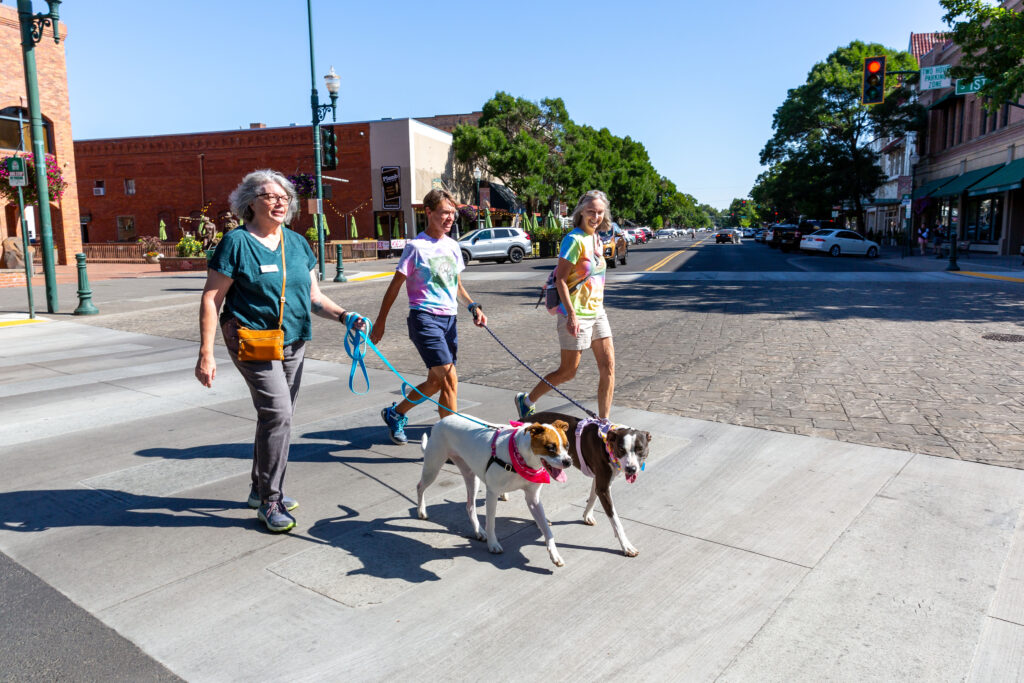
Karen Maxwell also volunteers with the Pawsitive Adventures program. They often visit the city of Walla Walla after a trail walk. (Credit: Steve Lenz / Blue Mountain Humane Society)
“My favorite volunteer days are when we do Pawsitive Adventures,” said Machelle Colligan, a regular volunteer. “Once we get them out, the barking stops and they’re just much calmer. It’s a much truer picture of their real personalities.”
Karen Maxwell, another regular volunteer, agreed. “This is who they are when they’re out here,” she said.

